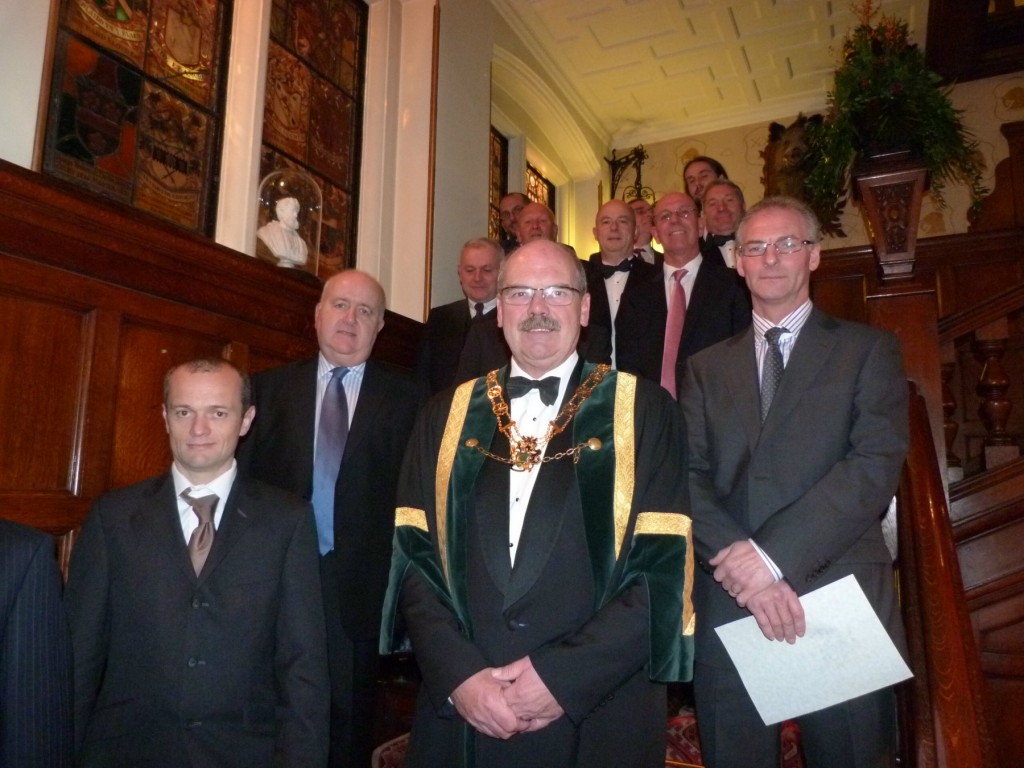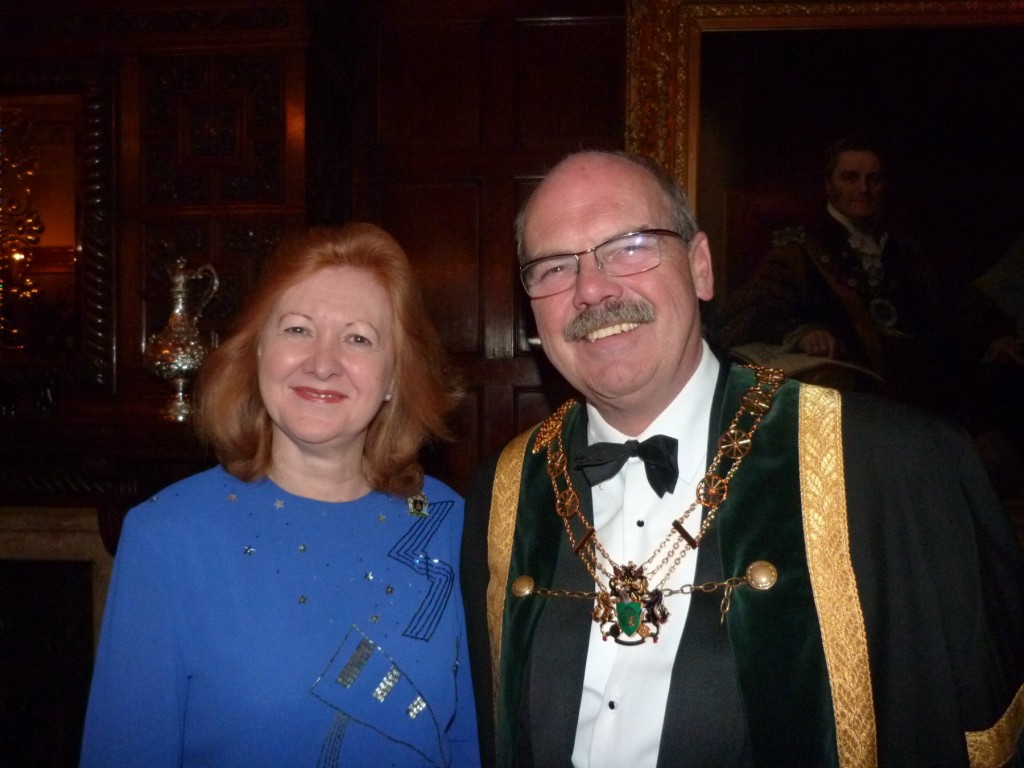On 21st November, the annual Worshipful Company of Hackney Carriage Drivers Liverymen’s dinner was held at the Cutlers’ Hall in Warwick Lane. The Worshipful Company of Hackney Drivers were delighted to have Lady Victoria Borwick, Deputy Mayor of London as their guest speaker for this occasion. Before the dinner, the Master, Graham Woodhouse, clothed seven Freemen of the Company in the Livery. These are Gavin Davis OBE, William Ives, Carlos Oliveira, Silvi Oliveira, Chas Reilly, Dean Thomas and Gary Wilcox.
Then the Master was delighted to welcome five new Freemen to the Company, namely Vasil Bagashki, John Coughlan, Lee Hilligenn, Martin Lyons-Applebee and Marios Stavrou. Having completed these ceremonies, it was the turn of 14 students who have recently completed the Company’s Cab Guide Course to receive their certificates. Following a drinks reception, the dinner was held in the magnificent surroundings of the Cutlers’ Hall, where the Master Cutler was also one of the guests. Following the WCHCD Master’s speech, he introduced the guest speaker, Victoria Borwick. With a wealth of knowledge about the cab trade as both her father and her husband, Jamie Borwick have been involved in the business, Victoria gave an informative speech and in particular recognised the good work that the annual Magical Taxi Tour carries out and the joy it brings to the children who go on the trip.
LIFETIME ACHIEVEMENT AWARD
This is the first time that the WCHCD had awarded it newly created Lifetime of Achievement Award. This award is presented to someone who has worked in the cab industry for many years and made a difference to the trade. The inaugral Award was presented to Bob Oddy, a licensed taxi driver since 1966, who has worked at the LTDA for many years, joining in the early 1970s. Bob took over as General Secretary at the LTDA from Harry Feigen, who was Master of the WCHCD for two years from 1990. He has been actively involved in many issues affecting the taxi industry; he was instrumental in the creation of the Taxi Cost Index, the formula used to decide fare increases and has worked in the interests of the LTDA members throughout his time at the LTDA. Bob said: “I was delighted, and extremely surprised to receive the award. I’m sure that there are many others within our trade who are equally deserving. The Company of Hackney Carriage Drivers does wonderful work for charity, in particular its organisation of the annual Magical Taxi Tour to Disneyland Paris. I’m confident that the enthusiasm of the Company’s members will drive its charity achievements to even greater heights.”



TaxiCabNews













Social